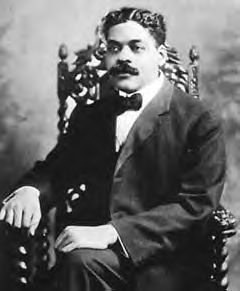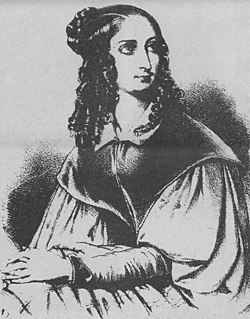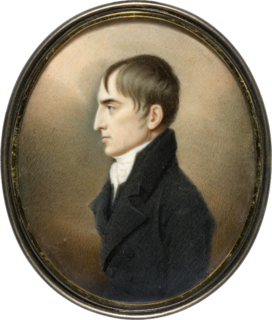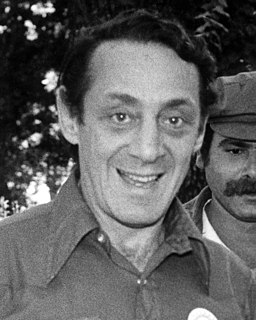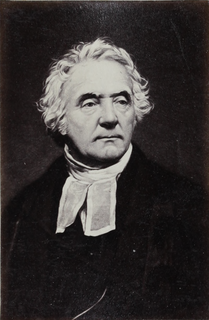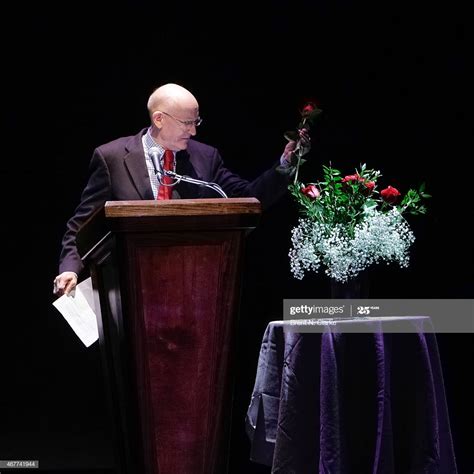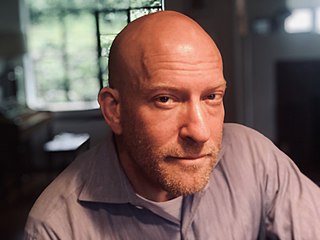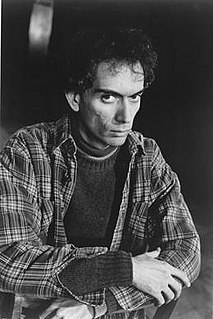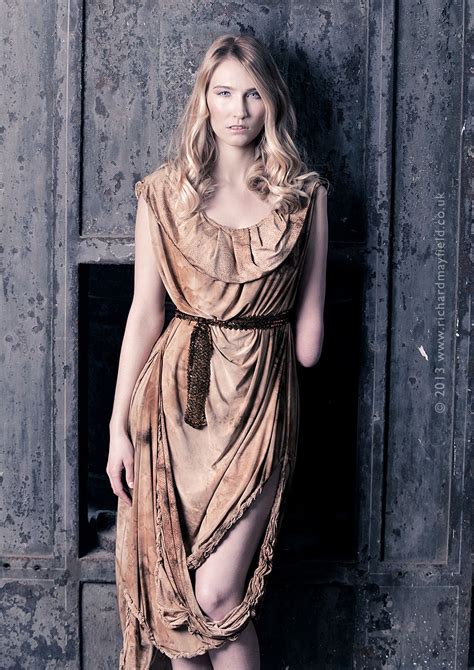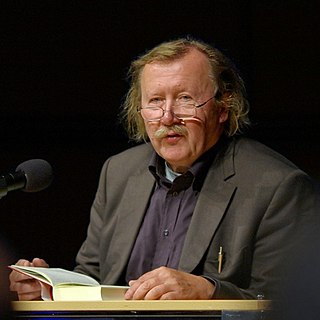Top 1144 Prejudice Quotes & Sayings - Page 19
Explore popular Prejudice quotes.
Last updated on April 19, 2025.
The American Negro must rebuild his past in order to make his future. Though it is orthodox to think of America as the one country where it is unnecessary to have a past, what is a luxury for the nation as a whole becomes a prime social necessity for the Negro. For him, a group tradition must supply compensation for persecution, and pride of race the antidote for prejudice. History must restore what slavery took away, for it is the social damage of slavery that the present generation must repair and offset.
Islam makes very large claims for itself. In its art, there is a prejudice against representing the human form at all. The prohibition on picturing the prophet - who was only another male mammal - is apparently absolute. So is the prohibition on pork or alcohol or, in some Muslim societies, music or dancing. Very well then, let a good Muslim abstain rigorously from all these. But if he claims the right to make me abstain as well, he offers the clearest possible warning and proof of an aggressive intent.
I have always had this very strong, call it a feeling, call it a prejudice, call it a conviction ... that the mysteries are not easily available. You have to earn entrance into them. You didn't learn things for too little. You had to pay a price. And I felt that LSD was just blasting superhighways into the mysteries. And what I really didn't like about LSD is that people who were taking it were seeming to become less and less as they took it. They got emptier and more vapid.
When our thoughts revolve we are so often deceived into supposing that their violent movement is an indication of their vigorous originality, the upheaval of prejudice and fixed ideas, when all the time it is more likely that the machine which contains them is only an elaborate cement-mixer, and when the thinking is finished, those whirling thoughts are smoothed into the unchanged conventional mould and seeing them set solid enough to dance, to build, to travel upon, we would never dream of their first deceit, of the hope once roused by their apparently violent reorganisation.
Cultural speciation had been crippling to human moral and spiritual growth. It had hindered freedom of thought, limited our thinking, imprisoned us in the cultures into which we had been born. . . . These cultural mind prisons. . . . Cultural speciation was clearly a barrier to world peace. So long as we continued to attach more importance to our own narrow group membership than to the ‘global village’ we would propagate prejudice and ignorance.
A man who tells secrets or stories must think of who is hearing or reading, for a story has as many versions as it has readers. Everyone takes what he wants or can from it and thus changes it to his measure. Some pick out parts and reject the rest, some strain the story through their mesh of prejudice, some paint it with their own delight. A story must have some points of contact with the reader to make him feel at home in it. Only then can he accept wonders.
When the Kerner Commission told white America what black America has always known, that prejudice and hatred built the nation’s slums, maintains them and profits by them, white America could not believe it. But it is true. Unless we start to fight and defeat the enemies in our own country, poverty and racism, and make our talk of equality and opportunity ring true, we are exposed in the eyes of the world as hypocrites when we talk about making people free - (Chapter 9).
Virtue and vice suppose the freedom to choose between good and evil; but what can be the morals of a woman who is not even in possession of herself, who has nothing of her own, and who all her life has been trained to extricate herself from the arbitrary by ruse, from constraint by using her charms?... As long as she is subject to man's yoke or to prejudice, as long as she receives no professional education, as long as she is deprived of her civil rights, there can be no moral law for her!
The mockery made him feel an outsider; and feeling an outsider he behaved like one, which increased the prejudice against him and intensified the contempt and hostility aroused by his physical defects. Which in turn increased his sense of being alien and alone. A chronic fear of being slighted made him avoid his equals, made him stand, where his inferiors were concerned, self-consciously on his dignity.
Perhaps, some day, humanity can start afresh, a new world, a tabula rasa, a world with a mind without prior experiences. No memories and no pain. A day when the ones with abundance do not look down at the poor and the needy, a day when we learn to care for the victims, the fallen souls of civilization and advancement, a day when the world will be pure. When all of humanity becomes a clean sheet of parchment, without knowledge and prejudice, simple, hungry for knowing, tasting, and feeling; hungry for life and ready to absorb the ink of experience.
I was after a set of pictures, so that when people looked at them they would say, ‘This is war’-that the people who were in the war would believe that I had truthfully captured what they had gone through I worked in the framework that war is horrible. I want to carry on what I have tried to do in these pictures. War is a concentrated unit in the world and these things are clearly and cleanly seen. Things like race prejudice, poverty, hatred and bigotry are sprawling things in civilian life, and not so easy to define as war.
Even the wisest of mankind cannot live by reason alone; pure arrogant reason, denying the claims of prejudice (which commonly are also the claims of conscience), leads to a wasteland of withered hopes and crying loneliness, empty of God and man: the wilderness in which Satan tempted Christ was not more dreadful than the arid expanse of intellectual vanity deprived of tradition and intuition, where modern man is tempted by his own pride.
I went to Catholic school my entire life. Elementary school was probably my worst time - those are the years when you're figurin' out who you are, and then you've got the added pressure of being on the light-skinned side of things. I've been around - excuse me saying - predominantly white people in Catholic school, who sit around and just talk about black people because they thought they were in the presence of themselves, and they used to talk cool. I felt firsthand the racial prejudice that is still alive today.
When you open yourself to the continually changing, impermanent, dynamic nature of your own being and of reality, you increase your capacity to love and care about other people and your capacity to not be afraid. You're able to keep your eyes open, your heart open, and your mind open. And you notice when you get caught up in prejudice, bias, and aggression. You develop an enthusiasm for no longer watering those negative seeds, from now until the day you die. And, you begin to think of your life as offering endless opportunities to start to do things differently.
Raise your hand if you’ve spent nights crying yourself to sleep, raise your hand if you’ve felt as if you’d rather hide in bed all day than face the people that make you feel small or powerless! Raise your hand if you’ve felt as if you’d rather lie to people than tell them the truth about who you really are, because at least you wouldn’t be the victim of hateful behavior or prejudice! And raise your hand if lying feels almost as bad.
I believe that fallen creatures perish, perish for ever, for only good can live, and good has not been theirs; but how durst men forge our Saviour's words "eternal death " into so horrible a meaning? And even if he did use other words, and seem to countenance such a meaning for them (and what witness have we that He did, except that of men whose ignorance or prejudice might well have interpreted these words wrongly as they did so many others?
Those who are guilty of the argumentum ad ignorantiam profess belief in something because its opposite cannot be proved ... In the realm where "prejudice" is now most an issue, it normally takes a form like this: you cannot prove by the method of statistics and quantitative measurement that men are not equal. Therefore all men are equal. ... You cannot prove again by the methods of science that one culture is higher than another. Therefore the culture of the Digger Indians is just a good as that of Muncie, Indiana, or thirteenth-century France.
When you want to organize knowledge. you will be careful to base the classification upon essential qualities. You will thus derive classes in which the members have the greatest amount of resemblance to one another and the greatest amount of difference from the members of other classes. But suppose that, instead of organizing knowledge, you set out to organize ignorance and prejudice. You will then do precisely the opposite.You will keep the classification vague and flexible, so that it can be made to include just whatever individuals you choose.
A lot of young people regard a threat against one person's sexual freedom as a threat against all of them, and that's absolutely how they should regard it. But it's heartening to look at the polls on young people on gay people, gay marriage, and sexual-freedom issues. They're terrific, and that's why the religious right is so desperately trying to lock in their current bare majority for prejudice: because their constituents are dying. They're losing votes every time the ambulance pulls up to the old folks' home. Let's hope it pulls up a little more frequently.
He smiled understandingly-much more than understandingly. It was one of those rare smiles with a quality of eternal reassurance in it, that you may come across four or five times in life. It faced--or seemed to face--the whole eternal world for an instant, and then concentrated on you with an irresistible prejudice in your favor. It understood you just as far as you wanted to be understood, believed in you as you would like to believe in yourself, and assured you that it had precisely the impression of you that, at your best, you hoped to convey.
There are many actresses that are working longer, because until you change the playing field and make it economically stronger for women, it's very difficult to say no to somebody when that's your only gig. If you're a producer, or if you have more power, you're going to be in a position to know that if you burn that bridge, there'll still be this bridge open. But still - when people ask me 'do you think your politics have decreased your chances of working, I say: 'In Hollywood, most of the prejudice has to do with if you're old or fat.' Power can't forgive that".
Of one man in especial, beyond anyone else, the citizens of a republic should beware, and that is of the man who appeals to them to support him on the ground that he is hostile to other citizens of the republic, that he will secure for those who elect him, in one shape or another, profit at the expense of other citizens of the republic. It makes no difference whether he appeals to class hatred or class interest, to religious or anti-religious prejudice. The man who makes such an appeal should always be presumed to make it for the sake of furthering his own interest.
Many who know something but not enough about dreams and their meaning...are liable to succumb to the prejudice that the dream actually has a moral purpose, that it warns, rebukes, comforts, foretells the future, etc. If one believes that the unconscious always knows best, one can easily be betrayed into leaving the dreams to take the necessary decisions, and is then disappointed when the dreams become more and more trivial and meaningless...The unconscious functions satisfactorily only when the conscious mind fufills its task to the very limit.
However we may flatter ourselves to the contrary, our friends think no higher of us than the world do. They see us through the jaundiced or distrustful eyes of others. They may know better, but their feelings are governed by popular prejudice. Nay, they are more shy of us (when under a cloud) than even strangers; for we involve them in a common disgrace, or compel them to embroil themselves in continual quarrels and disputes in our defense.
I have but one request to ask at my departure from this world; it is-THE CHARITY OF ITS SILENCE. Let no man write my epitaph; for as no man who knows my motives dare now vindicate them, let not prejudice or ignorance asperse them. Let them and me rest in obscurity and peace, and my name remain uninscribed, until other times and other men can do justice to my character. When my country takes her place among the nations of the earth, then, and not till then, let my epitaph be written.
People experience all kinds of prejudice because of all different parts of themselves. And that doesn't make one part more important than the other. We live in a society that does not openly accept every kind of human being. And so the result is when you are yourself and someone who's marginalized, it becomes a revolutionary act - just being comfortable in your own body and being comfortable speaking, sharing your ideas. It's really amazing and also, like, kind of sad.
I would like to see every gay doctor come out, every gay lawyer, every gay architect come out, stand up and let that world know. That would do more to end prejudice overnight than anybody would imagine. I urge them to do that, urge them to come out. Only that way will we start to achieve our rights.
Our goal is to have a country that's not divided by race. And my impression, as I travel around the country, is that that's the kind of country that most people want, as well, and that we all have prejudice, we all have certain suspicions or stereotypes about people who are different from us, whether it's religious or racial or ethnic, but what I think I found in the American people, I think there's a core decency there, where if they take the time, if they get the time to know individuals, then they want to judge those individuals by their character.
The human mind feels restless and dissatisfied under the anxieties of ignorance. It longs for the repose of conviction; and to gain this repose it will often rather precipitate its conclusions than wait for the tardy lights of observation and experiment. There is such a thing, too, as the love of simplicity and system,--a prejudice of the understanding which disposes it to include all the phenomena of nature under a few sweeping generalities,--an indolence which loves to repose on the beauties of a theory rather than encounter the fatiguing detail of its evidences.
I typically don't use the distinction 'positive' and 'negative' liberty, because negative sounds bad and positive sounds good, and I don't think that the terminology ought to prejudice us one way or the other. So I think the more descriptive term is 'liberty rights' versus 'welfare rights'. So, liberty rights are freedom-of-action type rights, and welfare rights are rights-to-stuff, of various kinds...And, property rights are not rights-to-stuff. I think that's one of the key misunderstandings about property. Property rights are the rights to liberty within your jurisdiction.
History affords us many instances of the ruin of states,
by the prosecution of measures ill suited to the temper and
genius of their people. The ordaining of laws in favor of one
part of the nation, to the prejudice and oppression of another, is certainly the most erroneous and mistaken policy. ... These measures never fail to create great and violent jealousies and animosities between the people favored and the people oppressed; whence a total separation of affections, interests, political obligations, and all manner of connections, by which the whole state is weakened.
Those of us in law enforcement must redouble our efforts to resist bias and prejudice. We must better understand the people we serve and protect - by trying to know, deep in our gut, what it feels like to be a law-abiding young black man walking on the street and encountering law enforcement. We must understand how that young man may see us.
A prejudice may be an unreasoned judgment, he [Hibben] pointed out, but an unreasoned judgment is not necessarily an illogical judgment. ... First, there are those judgments whose verification has simply dropped out of memory. ... The second type of unreasoned judgments we hold is the opinions we adopt from others ... The third class of judgments in Professor Hibben's list comprises those which have subconscious origin. The material that furnishes their support does not reach the focal point of consciousness, but psychology insists upon its existence.
A great deal of what passes by the name of patriotism in these days consists of the merest bigotry and narrow-mindedness; exhibiting itself in national prejudice, national conceit, and national hatred. It does not show itself in deeds, but in boastings--in howlings, gesticulations, and shrieking helplessly for help--in flying flags and singing songs--and in perpetual grinding at the hurdy-gurdy of long-dead grievances and long-remedied wrongs. To be infested by such a patriotism as this is perhaps among the greatest curses that can befall any country.
As the tide of feminism that crested two decades ago recedes and the old advance-and-retreat games of courtship return, "Pride & Prejudice" speaks wistfully to the moment. Elizabeth Bennet and Fitzwilliam Darcy are tantalizing early prototypes for a Katharine Hepburn-Spencer Tracy ideal of lovers as brainy, passionate sparring partners. That the world teems with fantasies of Mr. Darcy and his ilk there is no doubt. How many of his type are to be found outside the pages of a novel, however, is another matter.
Crimson flames tied through my ears Rollin' high and mighty traps Pounced with fire on flaming roads Using ideas as my maps "We'll meet on edges, soon," said I Proud 'neath heated brow. Ah, but I was so much older then, I'm younger than that now. Half-wracked prejudice leaped forth "Rip down all hate," I screamed Lies that life is black and white Spoke from my skull. I dreamed Romantic facts of musketeers Foundationed deep, somehow. Ah, but I was so much older then, I'm younger than that now.
Absolutely. I think, I think the American people, at their core, are a decent people. I think that we still have prejudice in our midst, but I think that the vast majority of Americans are willing, are willing to judge people on the basis of their ideas and their character. And in the case of the presidency, I think what's most important is whether the American people think that you understand their hopes and dreams and struggles and whether they think you can actually help them achieve those hopes and dreams.
Housing in New York seemed to fit Norman Lear. In addition, his shows confronted all kinds of social issues - racial separation and prejudice being foremost among them. The Evans of Good Times were the first black family to be the focus of a primetime American TV show. A lot of the people we came across in filming were familiar with the role Norman played in catalyzing important national conversations about race. They seemed grateful to him for trying to move the needle.
In an essay 10 years ago, I pointed out that it is utterly logical for polygamy rights to follow gay rights. After all, if traditional marriage is defined as the union of (1) two people of (2) opposite gender, and if, as advocates of gay marriage insist, the gender requirement is nothing but prejudice, exclusion and an arbitrary denial of one's autonomous choices in love, then the first requirement - the number restriction (two and only two) - is a similarly arbitrary, discriminatory and indefensible denial of individual choice.
When the sovereign spirit within us is true to nature, it stands poised and ready to adjust to every change in circumstances and to seize each new opportunity. It doesn't approach an object with prejudice or preconception, but handles each thing dispassionately before embracing it and, if necessary, finds advantage in what opposes it. It is like fire in this regard. Whereas a feeble flame might suffocate under a pile of dry sticks, a robust fire consumes everything it touches. The more objects of any kind heaped on it, the higher it rises, the hotter it burns.
In my life I have had to work through problems of stigmatization and prejudice. When I discovered the power of the arts to express my pains and joys, it became clear to me that there would be no other way to work through the demons except to fully embrace the process of creation. The work was not personal therapy but had a connection to other peoples' realities. As I grow older and more mature, it becomes clearer to me that personal struggles and conflicts are connected with universal struggles and conflicts. It is this knowledge, ironically, that gives me the freedom to experiment in my work
Show me a man or a woman alone and I'll show you a saint. Give me two and they'll fall in love. Give me three and they'll invent the charming thing we call 'society'. Give me four and they'll build a pyramid. Give me five and they'll make one an outcast. Give me six and they'll reinvent prejudice. Give me seven and in seven years they'll reinvent warfare. Man may have been made in the image of God, but human society was made in the image of His opposite number, and is always trying to get back home.
The format of the book was the idea of my wonderful editor, Stephen Segal. Stephen and I had worked together before, on projects for the Interstitial Arts Foundation, and when he got the idea for an accordion-style book, he called and asked if I could write the story for it. I told him that I would love to try! And I knew it had to be a love story, because that's the sort of story you really want to hear from both perspectives. I mean, imagine if Pride and Prejudice were told from Darcy's perspective as well as Elizabeth's. It would be quite a different story!
Luckily for me, most of my work is through a brand or client who approaches my agent. Before I began modeling, I never realized how many barriers there were for people with disabilities within the industry. I didn't realize how much prejudice and ignorance existed. That made me even more determined to break down the barriers and to wake up the industry to the fact that beauty shows up in all different shapes, sizes and abilities.
If this "critical openminded attitude" ... is wanted, the question at once arises, Is it science that should be studied in order to achieve it? Why not study law? A judge has to do everything that a scientist is exhorted to do in the way of withholding judgment until all the facts are in, and then judging impartially on the merits of the case as well as he can. ... Why not a course in Sherlock Holmes? The detectives, or at least the detective-story writers, join with the scientists in excoriating "dogmatic prejudice, lying, falsification of facts, and data, and willful fallacious reasoning."
Require nothing unreasonable of your officers and men, but see that whatever is required be punctually complied with. Reward and punish every man according to his merit, without partiality or prejudice; hear his complaints; if well founded, redress them; if otherwise, discourage them, in order to prevent frivolous ones. Discourage vice in every shape, and impress upon the mind of every man, from the first to the lowest, the importance of the cause, and what it is they are contending for.
After we have thought out everything carefully in advance and have sought and found without prejudice the most plausible plan, we must not be ready to abandon it at the slightest provocation. should this certainty be lacking, we must tell ourselves that nothing is accomplished in warfare without daring; that the nature of war certainly does not let us see at all times where we are going; that what is probable will always be probable though at the moment it may not seem so; and finally, that we cannot be readily ruined by a single error, if we have made reasonable preparations.
Anyone who knows he is loved is in turn prompted to love. It is the Lord himself, who loved us first, who asks us to place at the center of our lives love for him and for the people he has loved. It is especially adolescents and young people, who feel within them the pressing call to love, who need to be freed from the widespread prejudice that Christianity, with its commandments and prohibitions, sets too many obstacles in the path of the joy of love and, in particular prevents people from fully enjoying the happiness that men and women find in their love for one another.
Every issue of the paper presents an opportunity and a duty to say something courageous and true; to rise above the mediocre and conventional; to say something that will command the respect of the intelligent, the educated, the independent part of the community; to rise above fear of partisanship and fear of popular prejudice. I would rather have one article a day of this sort; and these ten or twenty lines might readily represent a whole day's hard work in the way of concentrated, intense thinking and revision, polish of style, weighing of words.
D'you ever wonder what it would be like if our positions were reversed?' I ask. At Jack's puzzled look I continue. 'If we whites were in charge instead of you Crosses?' 'Can't say it's ever crossed my mind,' Jack shrugs. 'I used to think about it a lot,' I sigh. 'Dreams of living in a world with no more discrimination, no more prejudice, a fair police force, an equal justice system, equality of education, equality of life, a level playing field.
The mental cognitive processes that we're targeting are ones that narrow human beings' repertoire and make it harder for them to learn to be more flexible, to take advantage of the opportunities in front of them. We can have something to help with in areas like child development or organizations and schools, or maybe even how peoples interact with each other, one to the other. We've taken the work into things like prejudice and stigma, because if we can't solve that we have planes flying into buildings. So it applies broadly because anywhere that a human mind goes these processes go.
There is so much closed-mindedness, there is so much closed-off thought, there is so much bigotry and prejudice within knowledge that it, I think, is stunting the actual intelligence growth of our population. Not our capabilities but our actual intelligence growth because all of the stigma that's attached to people that don't have formal educations as opposed to those who do. But the people that have formal educations have been programmed and indoctrinated in many cases, not in all the disciplines.
In truth, philosophy is the mode of thought shaped by the most radical form of prejudice: the passion of being-in-the-world. With the sole exception of specialists in the field, virtually everyone senses that anything which offers less than this passion play remains philosophically trivial. Cultural anthropologists suggest the appealing term 'deep play' for the comprehensively absorbing preoccupations of human beings. From the perspective of a theory of the practising life we would add: the deep plays are those which are moved by the heights.
The divide of race has been America's constant curse. Each new wave of immigrants gives new targets to old prejudices. Prejudice and contempt, cloaked in the pretense of religious or political conviction, are no different. They have nearly destroyed us in the past. They plague us still. They fuel the fanaticism of terror. They torment the lives of millions in fractured nations around the world. These obsessions cripple both those who are hated and, of course, those who hate, robbing both of what they might become.
Even as considering African-Americans, immigrants and other groups who may be marginalized in different ways, American Muslims are still one of the most marginalized groups. Overt prejudice is probably more acceptable toward American Muslims than any other single group in the U.S. There is still a lot of policies in place that are incredibly effective that don't show any signs of eroding. So, I don't want to overstate the optimism but I think things are headed gradually in the right direction. Just because of the distance between us and 9/11.
The parallel between antifeminism and race prejudice is striking. The same underlying motives appear to be at work, namely fear, jealousy, feelings of insecurity, fear of economic competition, guilt feelings, and the like. Many of the leaders of the feminist movement in the nineteenth-century United States clearly understood the similarity of the motives at work in antifeminism and race discrimination and associated themselves with the anti slavery movement.
The first diabolical character who intruded himself on my peaceful youth (as I called to mind that day at Dullborough), was a certain Captain Murderer. This wretch must have been an off-shoot of the Blue Beard family, but I had no suspicion of the consanguinity in those times. His warning name would seem to have awakened no general prejudice against him, for he was admitted into the best society and possessed immense wealth. Captain Murderer's mission was matrimony, and the gratification of a cannibal appetite with tender brides.
The crisis [the Great Depression] discovered a great man in Franklin Roosevelt...None too soon he has carried America forward to the second stage of democratic realization. His New Deal involves such collective controls of the national business that it would be absurd to call it anything but socialism, were it not for a prejudice lingering on from the old individualist days against that word...Both Roosevelt and Stalin were attempting to produce a huge, modern, scientifically organized, socialist state, the one out of a warning crisis and the other out of a chaos.
Real knowing comes up when we stand in the appropriate place. But usually we don’t. First we want to understand something according to individual knowledge, prejudice, customs and habits. This means we are standing up in our individual place, not the universal perspective. This egoistic behavior makes it very difficult to see the overall picture. But buddhas and ancestors recommend that we first stand up in the appropriate place. Just stand up, be present in the Universe itself.
I've always been intrigued with the male characters in novels like 'Pride and Prejudice' such as Mr. Darcy, and this poem is part of a series of poems that explore desire and obsessions. The poems have been sitting in a drawer for a few years, so I decided to dust them off and work on them again since I have not written a new poem in more than three years. I'm not sure anything will become of the series, but at least it gives me something to work on in a period where I feel very uncreative.
